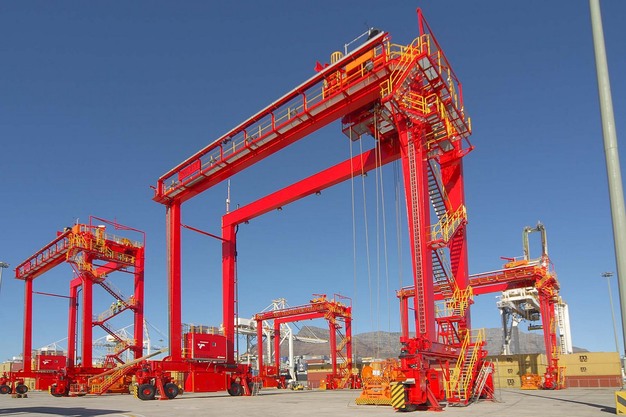On 6 December 2023, Western Cape Agricultural Minister, Ivan Meyer, met with key stakeholders within the agricultural sector regarding the grave and deeply concerning situation at the Port of Cape Town (PoCT). The purpose of the meeting was to hear directly from the industry and to better understand the impact the inefficiencies and failures at the PoCT were having on agricultural exports.

Minister Meyer, “I am deeply concerned about the failures at the PoCT and the significant impact it is having on agricultural exports. This week’s meeting offered our agriculture sector the opportunity to outline the challenges, highlight the severity of the crisis in the PoCT and discuss possible ways forward to improve the situation on the eve of the peak export season for our fruit industry.”
Stakeholders noted the work being done by Transnet’s National Logistics Crisis Committee (NLCC), their deep concern was that the focus has been largely on rail. According to Glen Steyn of the Western Cape Department of Economic Development and Tourism, “The growth in agricultural exports could potentially create another 20,000 jobs and generate R22 billion for the fiscus from PoCT. The target is that the PoCT moves fifty (50) containers per vessel per hour. The current performance is 24 - 25 per hour – half of what it should be. The terminal is unable to manage the normal flow of 1 000 - 1 500 containers from our fruit producers per week and when the demand doubles to 3 200 during the peak season which is between December and March, we fear that the terminal will collapse.”
Anton Rabe of Hortgro highlighted the estimated R2.5 billion was lost over the last season, and the table grape industry suffered just over R1 billion losses in 2021/22. “There is currently a disconnect regarding the realities of the perishable fruit industry and a lack of understanding for the impact that the inefficiencies at the PoCT are having on farms, jobs and rural communities.”
Wolfe Braude, Fruit Desk Manager at Agbiz says, “Fruit exports are higher in value than manganese or chrome exports. Agri exports in total are twice the value of South Africa’s machinery exports and slightly higher in value than South Africa’s automotive exports. The whole value chain, with all the support services around the modern, industrialised South African agricultural sector, are estimated to comprise up to 15% of South Africa’s GDP, all flowing from primary agriculture.”
Minister Meyer said, “We note the news that Minister Gordhan is interested in understanding the full value chain and the impact severe inefficiencies and failures are having on the fruit exports and that an additional berth has been opened at the PoCT. However, our grave concerns remain that the PoCT will not be able to meet the needs of our agricultural sector which relies heavily on an efficient port.”
For more information:
Daniel Johnson
Tel: +27 79 990 4231
Email: Daniel.Johnson@westerncape.gov.za
